Introduction
Conservatorio di Musica Santa Cecilia is one of the oldest music schools in the world. It is located in Rome, the capital of Italy. The school is located in the center of the ancient city of Rome, just a few steps away from Piazza di Spagna.
Overview
Student size: The specific number of students has not been clearly announced, but as a well-known music school, it attracts many Italian and international students to study.
Faculty: The academy has more than 160 professors, all of whom are well-known musicians who have been or are active on the international stage, such as the famous pianist Vincenzo Vitale, the famous composer Ildebrando Pizzetti, etc.
History and establishment time
The history of the academy can be traced back to a music association established by musicians in Rome in 1565. In 1870, Cardinal Camillo di Pietro officially announced the establishment of the Rome Conservatory of Music and named it after Saint Cecilia, the patron saint of music. In 1886, it became the Royal Conservatory of Music owned by the Italian royal family. After the establishment of the Italian Republic, it became the National Conservatory of Music.
School strength
Teaching quality: The curriculum is rich, covering undergraduate, postgraduate, preparatory, artist diploma and Italian traditional curriculum courses, etc., providing students with a variety of learning options. The college focuses on practical teaching, holds a large number of concerts every year, provides students with abundant performance opportunities, and often invites musicians from all over the world to the college to conduct master classes, so that students can be exposed to international cutting-edge music concepts and performance skills.
Academic research: As a music college with a long history, it has a profound academic accumulation in music theory, composition, performance, etc., actively promotes the development of music academic research, and has made important contributions to the innovation and inheritance of the music field.
International cooperation: The college is one of the music colleges with the most foreign exchanges in Italy. It has formed sister colleges with 79 music colleges. The cooperative colleges include the University of Music and Performing Arts Vienna, the Royal Conservatory of Music in Brussels, the Central Conservatory of Music and many other world-renowned music colleges. It actively participates in the EU's Erasmus exchange student program, providing students with broad international exchange and learning opportunities.
Nature of the college
Public university.
Educational philosophy
Committed to cultivating music talents with excellent music skills, profound artistic background and innovative spirit, focusing on inheriting and promoting Italy's excellent music and cultural traditions, while encouraging students to show their personality and creativity in music creation and performance, closely combining theoretical learning with practical performances, and providing students with a comprehensive development of music education platform.
Key disciplines and departments
Key disciplines: Piano performance, vocal singing, composition, conducting, string performance, wind instrument performance and other majors have significant advantages in teaching and research, and have trained many internationally renowned musicians.
Department settings: The college does not clearly divide multiple departments, but around the field of music, it has set up curriculum systems of different levels and directions to meet the learning needs and career development goals of different students.
Ranking
The Santa Cecilia Conservatory of Music in Rome has a high reputation and status among the world's music schools, but there is currently no clear comprehensive global ranking. Ranked 51-100 in the 2022 QS WUR subject rankings.
Fees
As a public music school, both Italian and international students enjoy free tuition. They only need to pay a small registration fee each year. The specific amount can be found on the school's official website or consult the school's admissions department.
Campus Environment
The school is located in Rome, a city with a long history and profound cultural heritage. The campus building has a unique artistic style and complete internal facilities. It has a large concert hall, a violin making school, and a large music library with a rich collection of music scores, providing good conditions for students' learning, rehearsal and performance.
-
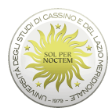
University of Cassino and Southern Lazio
-

University of Campania Luigi Vanvitelli
-
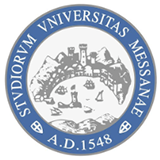
University of Messina
-

Libera Universita degli Studi Maria SS. Assunta di Roma (LUMSA)
-

University of Bari Aldo Moro
-

University of Siena
-

University of Salerno
-
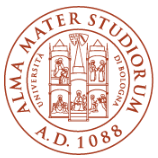
University of Bologna
-
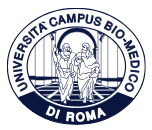
Campus Bio-Medico University of Rome
-
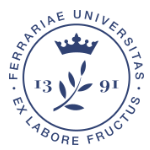
University of Ferrara
-

Mesoamerican University
-

Istmo University
-

Mariano Galvez University of Guatemala
-

Regional University of Guatemala
-

Galileo University
-

Francisco Marroquín University
-

Rafael Landívar University
-

University of the Valley of Guatemala
-

University of San Carlos of Guatemala
-

Technological Institute of Tlaxcala Plateau
-

Golfo University
-

Technological University of South Sonora
-

Technological University of Huejotzingo
-

Tizimín Institute of Technology
-

Chilpancingo Institute of Technology

